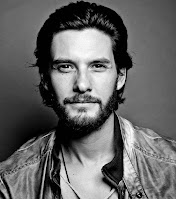For the purposes of this article, I won’t be diving into the early film or TV adaptations. (Yes, this omits the much-beloved 1943 classic starring Orson Welles and Joan Fontaine. Haters gonna hate.) There have been dozens of filmed adaptations made over the last 100 or so years, but the focus of this post is to demonstrate how we haven’t seen a quality feature-length film in 13 years or a first-rate TV movie/miniseries in at least 18 years. Case in point:
Most recent feature-length film adaptations of “Jane Eyre’:
Most recent miniseries or TV movie adaptations of “Jane Eyre”:
- 1983: Zelah Clarke and Timothy Dalton (miniseries)
- 1997: Samantha Morton and Ciaran Hinds (movie)
- 2006: Ruth Wilson and Toby Stephens (miniseries)
Most recent stage adaptation of “Jane Eyre”:
- 2015: National Theatre Live (UK); Madeleine Worrall and Felix Hayes
The last best feature-length, widely distributed film adaptation and made-for-TV miniseries, in my humble and honest opinion, are:
Jane Eyre
2011
PG-13
2 hours
Focus Features
Directed by Cary Joji Fukunaga
Starring: Mia Wasikowska and Michael Fassbender
Jane Eyre
2006
PG
3 hours and 50 minutes
BBC
Directed by Susanna White
Starring: Ruth Wilson and Toby Stephens
A young governess falls in love with her brooding and complex master. However, his dark past may destroy their relationship forever. [IMDB]
Of the recent adaptations of Charlotte Bronte’s groundbreaking novel, “Jane Eyre,” I’m partial to the 2011 feature-length film and the 2006 miniseries. Both versions take some liberty with the source material, but this is forgivable given the translation from book-to-screen and there is nothing too flagrant in disregard for Bronte’s vision to be worked up over. So, if you haven’t seen these versions, you can relax and enjoy. Production-wise, each of these adaptations looks perfect–from location choices, set dressing, costume, hair and makeup–it all works. The actors in the lead roles are well cast and extremely adept at portraying these extremely complex characters.
Of the two versions, the on-screen chemistry between Jane and Rochester is best portrayed by Ruth Wilson and Toby Stephens. Theirs is a deeply romantic and tactile representation of our ill-fated couple. I remember watching this miniseries and balking at the overt level of intimacy, finding it (at first) a bit over-the-top. It had been some time since I’d re-read “Jane Eyre,” so I pulled out my Bantam Classics edition and, much to my delight, found an awful lot of kissing for a couple of repressed Georgians. What I enjoy about Wilson’s and Stephens’ chemistry is that we get to see at length how much fire there is between this man and woman–a palpable desire and attraction that breathes some life into their very bleak collective existence. (It is, of course, short-lived. It wouldn’t be a Bronte novel if there wasn’t tremendous suffering to be endured.) The only time we really get that level of physical intimacy between Wasikowska and Fassbender is their all-to-brief tryst after getting caught in the rain immediately following the unexpected proposal. It’s one of few scenes where we get to enjoy their representation of Jane and Rochester as a couple before everything goes tits up, for want of a better phrase.
Each of the Janes are well cast and handle their responsibility to portray this much-beloved icon of early feminism with aplomb–which is no small feat. Both deliver with the precise amounts of certitude, forthrightness, gumption, self-respect, personal duty, and misery beheld by our cherished heroine. Of the two performances, I admit to preferring Wilson’s just a shade more. Wilson is consistently good in any role and she delivers Jane’s best lines with a passionate yet staid decorum.
As for the Rochesters, well…honestly, we do have ourselves an embarrassment of riches here. Both Stephens and Fassbender are intense actors who aren’t afraid to take on dark, morally gray characters and play them with the requisite rawness they require. Stephens’ portrayal is a bit softer and more dramatic than Fassbender; his is a Rochester we’re not terribly used to seeing–one who's more comfortable with revealing his emotions. Fassbender’s portrayal leans toward the more intense, aloof, deeply traumatized, and rage-filled Rochester we recognize from the original work. His delivery of “I could bend you with my finger and my thumb. A mere reed you feel in my hands. But whatever I do with this cage, I cannot get at you, and it is your soul that I want” will leave you equal parts disturbed and broken-hearted.
Both of these adaptations are wonderfully and lovingly appointed. I think it’s clear from watching them that the directors felt the weight of their responsibility to produce films of quality, and with great respect for the author’s work. Naturally, much of that credit goes to the screenwriters (Sandy Welch for the 2006 miniseries and Moira Buffini for the 2011 feature-length movie), whose jobs were no small task. No pressure at all to craft a well-organized adaptation of one of the best-known books in English literature and have the resulting iteration be compared against dozens of adaptations that came before without being labeled derivative. Luckily for them, they more than very much pass muster.
All of this said and done, it’s been over a decade since we’ve seen an adaptation of “Jane Eyre” on the big or small screen. I wholeheartedly and passionately believe it’s time to revisit Bronte country and let a new crop of filmmakers and actors try their luck.
If I had my shot at dream casting, it would look like this:
Mr. Rochester: Ben Barnes
Mrs. Fairfax: Julie Walters
St. John Rivers: Max Irons
Blanche Ingram: Lily Cole
Bertha Rochester nee Mason: Eva Green
Who would you like to see in the next big screen adaptation of Charlotte Bronte’s “Jane Eyre”? Tell us in the comments section.
LEND YOUR VOICE: Consider lending your signature to this online petition to cast Ben Barnes in two Brontë classics.

















